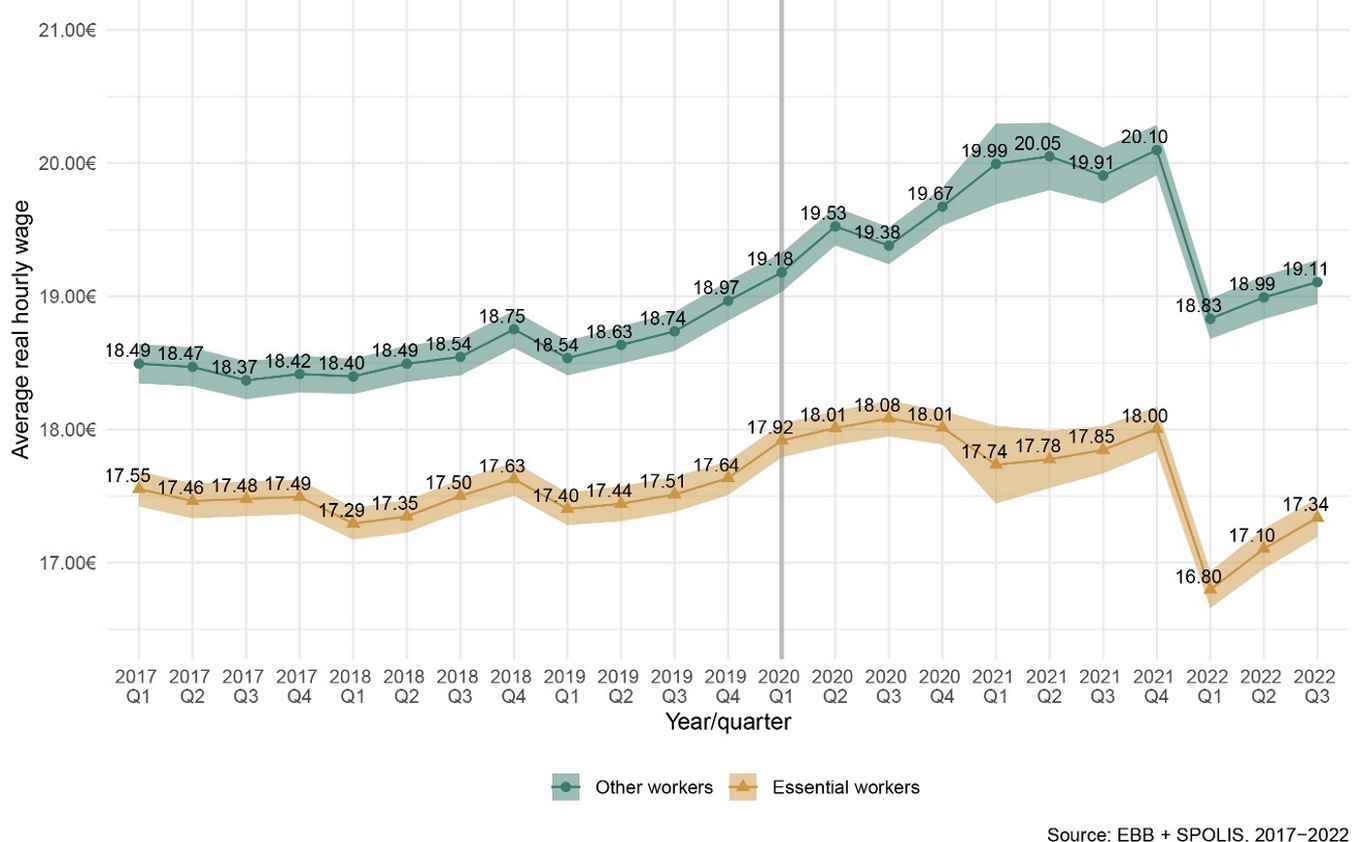For most people wage labour determines their life chances. Jobs are needed to sustain a living, but they also come with certain status. Some jobs are valued more than others. To understand wage inequality the focus has long been on occupations. But the eye now increasingly turns to organisations. Comparable jobs do not all earn the same across organisations. And this form of inequality is growing.

How much money do people earn in relation to their occupation and the organization where they work? Christoph Janietz is a sociologist who studies this question. To find answers he analyses administrative data from the Dutch tax registries on income taxes and registry data from the Dutch Labour Force Survey. 'We can now link wages of workers to organizations and learn much more about organization-based wage inequality.' Wage inequality turns out to be mainly growing between organisations.
It matters where your work
The increasing wage inequality between organizations can be explained by two dynamics states Janietz. 'First there is a differentiation of so called "firm wage premiums" at play. Workers in certain organisations earn a higher wage than workers performing similar jobs in other organisations.' He explains how this is partly a result of increasing decentralization of collective bargaining in the last decades. Often leading to no wage agreement for certain sectors or agreements that are firm-specific. 'This difference in what firms pay for comparable positions is only growing. So, it increasingly matters where you work!'
Outsourcing leads to wage penalties
Another dynamic that leads to growing wage inequality between organisations is that of 'occupational sorting'. 'The highest paid occupations work in the highest paying firms, while the lower paid occupations are isolated in lower paying organisations', explains Janietz this dynamic. 'Increasingly we find that lower paid occupations are no longer employed by the better paying organisations, even though they often work on the same location, but get outsourced to other organizations where they typically earn less. Think of catering and facility services.'
(un)acceptable levels of wage inequality
In contemporary labour markets, wage inequality is often justified by meritocratic reasoning. The idea that you must have earned your better pay check because of your higher education and skills. 'Generally, a better wage is seen as acceptable when a job is considered as more important than others', states Janietz. 'However, in this process, the important contributions to organizational success by workers in lower-paid occupations are often overlooked or discounted'. 'Why certain jobs earn so much more than others, and whether the extent of existing wage gaps are justified is not discussed enough,' stresses Janietz.
Wage inequality intersecting with gender inequality
In one of his projects, on the wage levels of essential jobs as classified by the Dutch government during the Covid-19 pandemic, Janietz finds how wage inequality also intersects with gender inequality. 'When we look at predominantly-female essential occupations we see that their wages are on average lower and have not improved relative to other jobs with comparable skill prerequisites.'

Janietz ties this to an emerging social problem, namely labour shortages and the undersupply of essential work for our society and economy. 'If essential jobs such as nursing or teaching, mostly performed by female staff, become undesirable because of insufficient pay, we will face the consequences collectively.'






